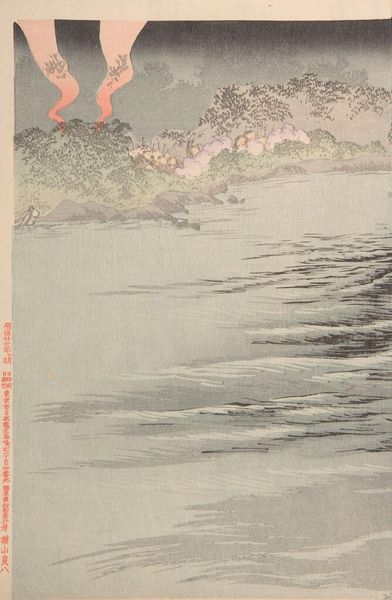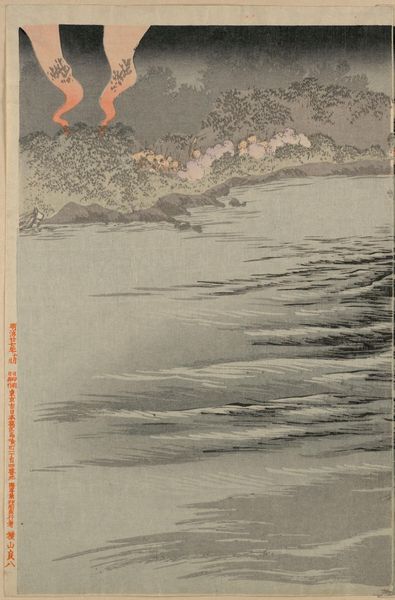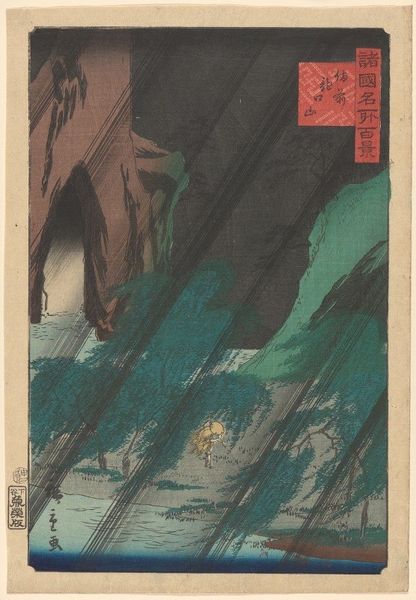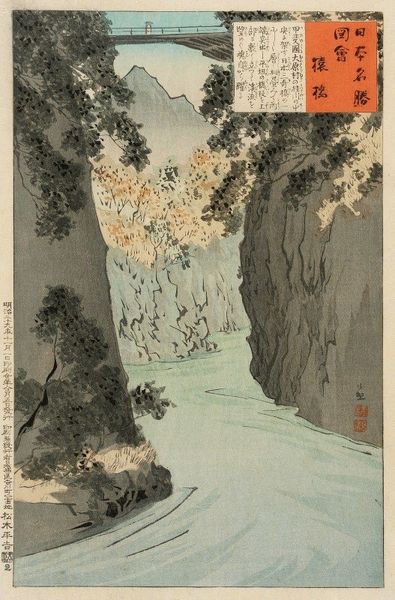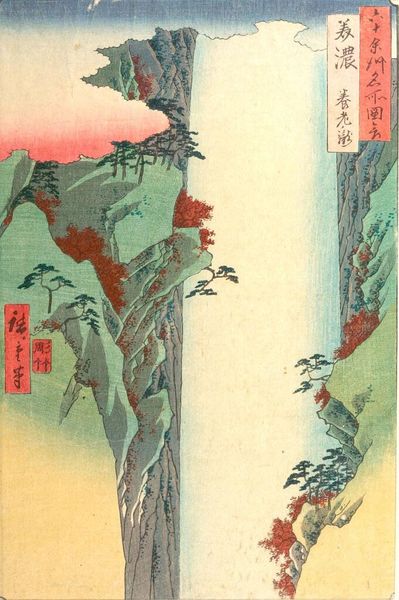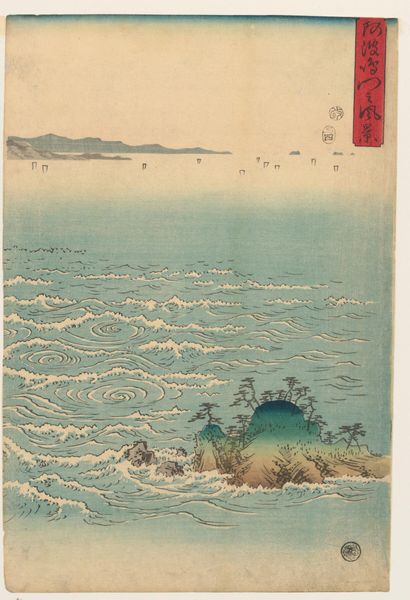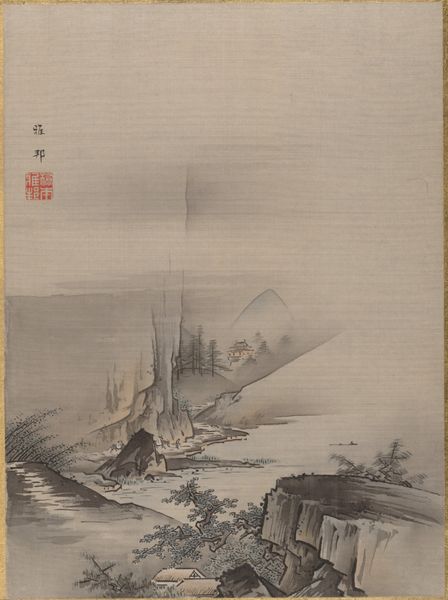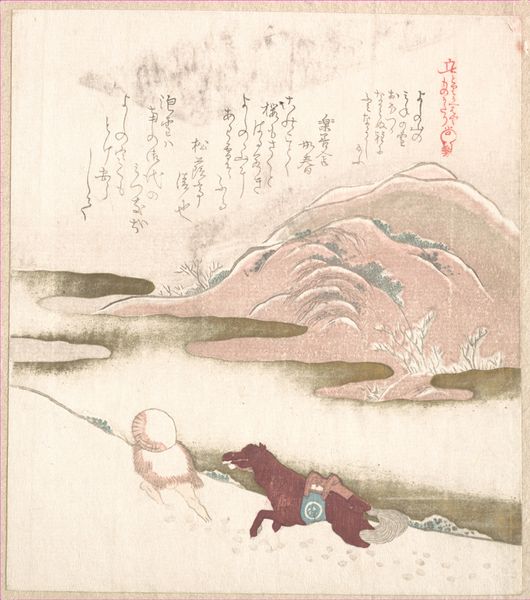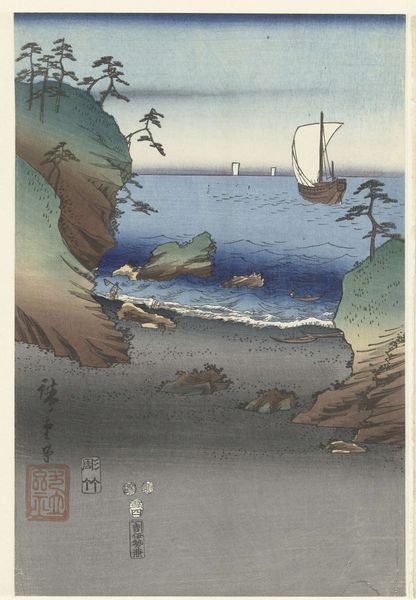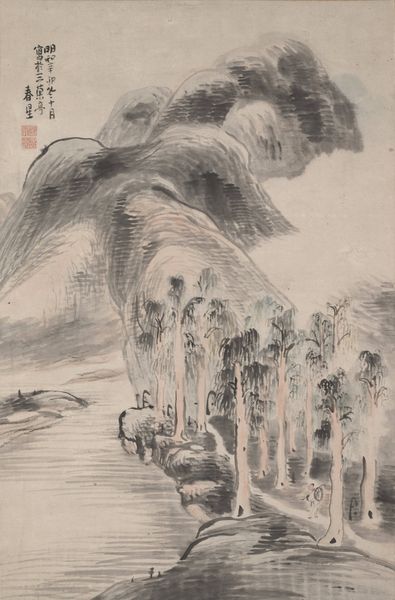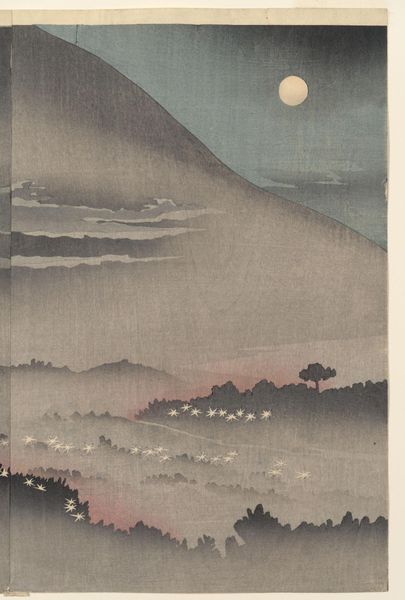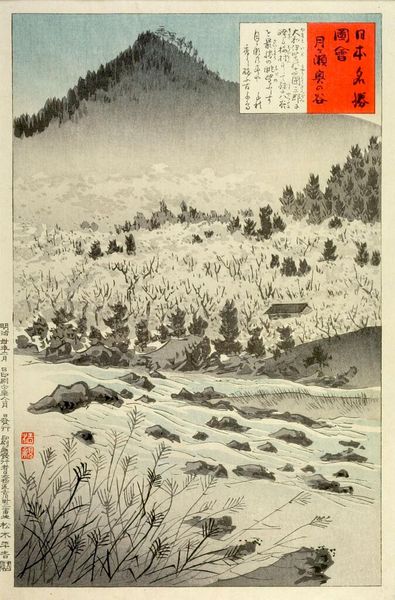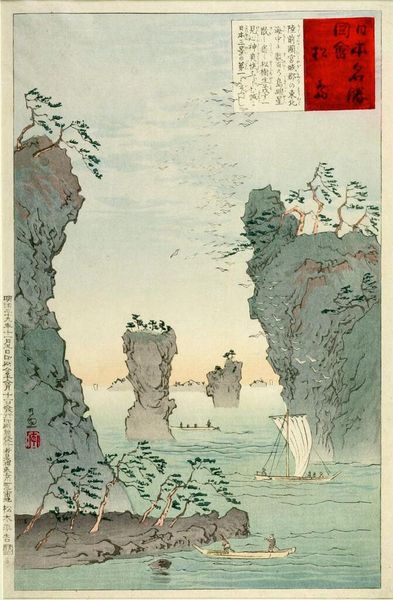
Sergeant Kawasaki Crosses the River DaidÅkÅ Alone (Kawasaki gunsÅ tanshin DaidÅkÅ o wataru) Possibly 1894
0:00
0:00
Dimensions: 37 x 24.3 cm (14 9/16 x 9 9/16 in.)
Copyright: CC0 1.0
Editor: This is Mizuno Toshikata's "Sergeant Kawasaki Crosses the River DaidÅkÅ Alone." It's a print, and I'm struck by the vulnerability of the figure, his pink legs exposed and vulnerable in the cold water. What statement do you think the artist is trying to make about the role of the soldier? Curator: It's a powerful image, isn't it? Given Toshikata's lifetime coincided with Japan's emergence as a modern military power, it's tempting to view it through a lens of critical patriotism. Consider the symbolic weight of the lone soldier, the DaidÅkÅ River, and the historical context of military expansion. How does this image challenge or reinforce traditional portrayals of military heroism? Editor: So, maybe it's not just about individual bravery, but about questioning the larger narrative of war itself? Curator: Precisely. It invites us to consider the individual within the broader political and social landscape of the Meiji era. The starkness and solitary figure prompts deeper reflections on sacrifice and national identity. Editor: I hadn't thought about the broader context of militarization. That really changes my understanding. Thanks!
Comments
No comments
Be the first to comment and join the conversation on the ultimate creative platform.
